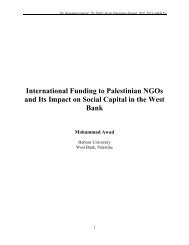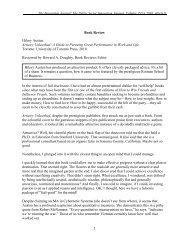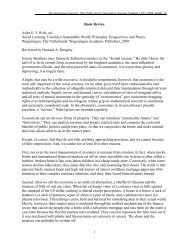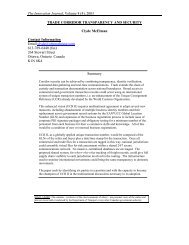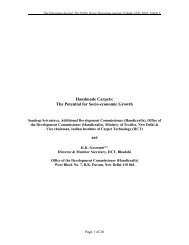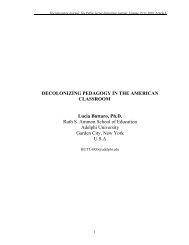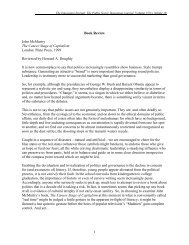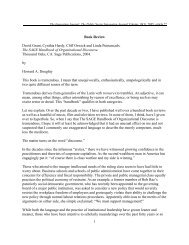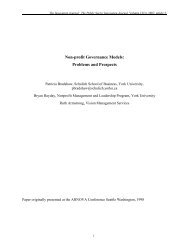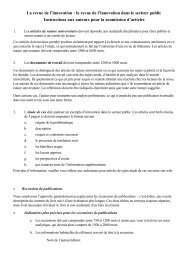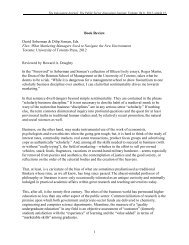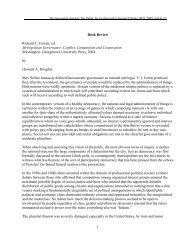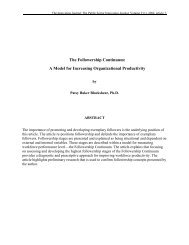William Easterley, White Man's Burden - The Innovation Journal
William Easterley, White Man's Burden - The Innovation Journal
William Easterley, White Man's Burden - The Innovation Journal
You also want an ePaper? Increase the reach of your titles
YUMPU automatically turns print PDFs into web optimized ePapers that Google loves.
<strong>The</strong> <strong>Innovation</strong> <strong>Journal</strong>: <strong>The</strong> Public Sector <strong>Innovation</strong> <strong>Journal</strong>, Volume 12(2), 2007, article 14.<br />
assistance that might produce better long-term self-reliance. “Give a man a fish, you feed him for<br />
a day; teach a man to fish, you feed him for a life-time,” and all that.<br />
Easterly is especially upset at what he calls the arrogance of Western development experts whom<br />
he sees as entering into situations from above, convinced of their own brilliance, imperiously<br />
self-righteous and secretively contemptuous of the people they are purportedly trying to help. It is<br />
the missionary position all over again.<br />
From this perspective, it is not difficult to draw an inference from Easterly’s enduring complaint.<br />
Max Boot, makes the point in <strong>The</strong> Savage Wars of Peace: Small Wars and the Rise of America’s<br />
Power (2003): “In the early twentieth century, Americans talked of spreading Anglo-Saxon<br />
civilization and taking up the 'white man's burden'; today they talk of spreading democracy and<br />
defending human rights. Whatever you call it, this represents an idealistic impulse that has<br />
always been a big part in America's impetus for going to war.”<br />
In fact, Easterly himself draws a similar conclusion. <strong>The</strong> grand development strategies, he says,<br />
amount to a “repetition of the mistakes committed in the war in Iraq: a naïve and arrogant focus<br />
on solving problems from the top with a big plan; and without having the slightest idea about the<br />
often confusing realities underlying these problems. It’s as difficult to reform and improve the<br />
foreign aid system as it is to democratize the Middle East.”<br />
<strong>The</strong> proposition that the invasion and occupation of Iraq was ever motivated by a desire to defend<br />
human rights or to democratize the Middle East is another – but related – matter, and will not be<br />
discussed here. Rather, the more immediate question is whether the “whole development<br />
profession” merely another guise for furthering Western domination of the underdeveloped<br />
countries? It may be, but this is not the direction in which Easterly seems determined to go. <strong>White</strong><br />
Man’s <strong>Burden</strong> seems more inclined toward what might, in other circumstances, be called the<br />
advocacy of “tough love.” He acknowledges that international assistance has its place, but he<br />
insists that “aid has to be focused on those areas where it works, with quantifiable objectives and<br />
by organizations which can be held accountable. Such unquantifiable things as fighting poverty<br />
in general or promoting economic progress have to be kept out of foreign aid.”<br />
3



